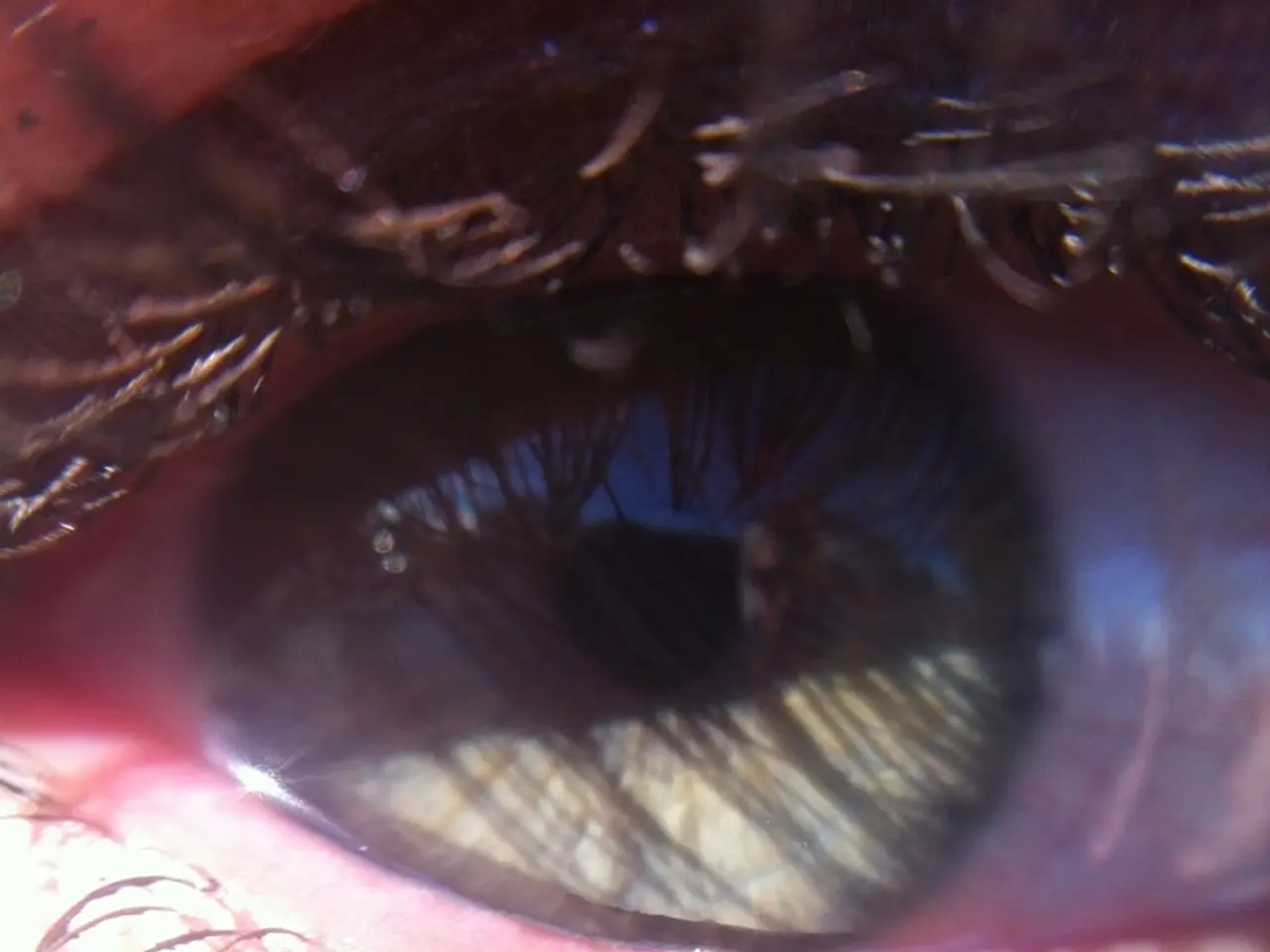Potential Risks Associated with Eyelash Extensions for the Eye
In the world of beauty, keeping up with the latest trends can sometimes overshadow the importance of understanding the potential risks associated with these treatments. This is particularly true when it comes to cosmetic procedures around the eye, such as lash extensions and eyeliner tattoos.
One significant concern is the use of adhesives in lash extension applications. Allergic reactions to these adhesives, often containing latex or formaldehyde, can cause redness, irritation, or inflammation on the eyelid skin. In severe cases, these reactions can lead to dry eye syndrome, lid margin inflammation, or even permanent lash loss due to a condition called traction alopecia.
Hard adhesive remnants at the lash base can also pose a threat. These residues can clog the meibomian glands, which are essential for maintaining tear film stability, potentially leading to dry eye syndrome and inflammation of the eyelids. Residual glue may also contribute to eyelid irritation and infection risk.
Eyeliner tattoos, while popular, also carry potential risks. The tattooing process can potentially damage delicate eyelid tissue and affect the meibomian glands, which contribute to tear film stability. This damage can lead to gland dysfunction, increasing the risk of dry eye and eyelid inflammation.
The German Ophthalmological Society (DOG) advises watching out for symptoms after an eye treatment. These may include redness, irritation, swelling, crusting around the lashes, dry eyes, sensitivity to light, and frequent tearing. If these symptoms persist or worsen despite proper care, it is important to see an ophthalmologist promptly to rule out infections, blepharitis, or other complications.
Prof. Elisabeth Messmer from the Eye Clinic of Ludwig-Maximilians-University Munich warns about potential issues with lash extension adhesive. She advises seeing an ophthalmologist if symptoms persist after an eye treatment. It is also crucial to ensure that the salon or practitioner follows strict hygiene protocols to minimize the risk of infection.
Some eye surgeries use heat to stop bleeding, and it's important to ask if lash extensions need to be removed beforehand, as they can catch fire. Not all individuals tolerate the adhesive ingredients used in lash extensions, so it's essential to discuss any concerns with your practitioner before undergoing the treatment.
In conclusion, while cosmetic treatments around the eye can enhance one's appearance, it is crucial to be aware of the potential risks and complications. By understanding these risks and taking necessary precautions, individuals can enjoy the benefits of these treatments while minimizing the risks to their eye health. If you experience eye pain or reduced vision after a cosmetic appointment, it's important to get it checked out by a doctor.
- In the realm of health-and-wellness, the scientific community often cautions about the potential risks associated with certain therapies-and-treatments, such as lash extensions and eyeliner tattoos, which can have significant impact on eye health and wellness.
- The use of adhesives in lash extension applications, often containing latex or formaldehyde, can lead to mental-health concerns due to allergic reactions causing redness, irritation, or inflammation, possibly leading to permanent lash loss, dry eye syndrome, or lid margin inflammation.
- Skin-care routines should prioritize maintaining proper eye health, as cosmetic procedures like eyeliner tattoos can potentially damage delicate eyelid tissue and affect the meibomian glands, contributing to gland dysfunction, dry eye, and inflammation, necessitating regular mental-health checks and professional consultations when serious symptoms persist.








